Financial Expenses

How long does it take to achieve financial freedom ?
Achieving financial freedom is a goal many people strive for, but the time it takes varies based on individual circumstances, habits, and market conditions. Factors influencing the journey include initial financial standing, income level and consistency, lifestyle and expenses, investment choices and returns, and economic and market conditions. Strategies to potentially shorten the timeline include increasing income, reducing expenses, investing wisely, managing debt, and planning for retirement. The path to financial freedom is unique for each person, but understanding the factors and using effective strategies can help anyone work towards achieving financial independence more efficiently.

How do I manage unexpected expenses within my budget ?
Unexpected expenses can be managed within your budget by establishing an emergency fund, reviewing and adjusting your budget, prioritizing expenses, considering short-term solutions, negotiating and seeking assistance, avoiding taking on debt, planning for future expenses, and staying vigilant with your budget. Start small with saving for emergencies, identify non-essential expenses to cut back on, prioritize essential expenses, consider side hustles or selling unused items for extra income, negotiate bills and seek assistance when needed, avoid high-interest loans, learn from past experiences to anticipate future expenses, and regularly review and adjust your budget as circumstances change.

How can I maintain my financial freedom once I achieve it ?
The text discusses strategies for maintaining financial freedom, including creating a budget and sticking to it, building an emergency fund, investing wisely, living below one's means, and continuously learning and growing. It emphasizes the importance of discipline, planning, and effort in sustaining financial independence.

How can I stick to my budget without feeling deprived ?
Sticking to a budget is easier when you don't feel deprived. Here's how to do it: 1. **Set Realistic Goals**: Break down your financial goals into smaller, more manageable ones and make them specific and measurable. 2. **Prioritize Your Expenses**: Categorize your expenses into essential and non-essential, and differentiate between needs and wants. 3. **Find Alternatives**: Consider DIY projects and buying used items instead of new ones to save money. 4. **Track Your Spending**: Use budgeting apps or visual aids to monitor your expenses and progress toward your financial goals. 5. **Reward Yourself**: Allow yourself small treats for sticking to your budget and plan larger rewards for achieving long-term financial goals. 6. **Stay Motivated**: Keep reminders of your financial goals visible and share your goals with friends or family members who can provide support.

In what ways does financial literacy affect personal finance management ?
Financial literacy is crucial for managing personal finances effectively, as it helps individuals understand basic financial concepts, promotes prudent budgeting and spending habits, shapes savvy saving and investing strategies, and facilitates efficient debt management.

What are some common pitfalls when creating a household budget ?
When creating a household budget, people often fall intoWhen creating a household budget, people often fall into can lead to financial difficulties and people often fall into common pitfalls that can lead to financial difficulties and make it harder to achieve financial goals. These pitfalls include not tracking expenses, underestimating expenses, ignoring debt repayment, failing to plan for emergencies, and overspending on non-essentials. To avoid these mistakes, people should keep track of all expenses, be realistic when estimating expenses, prioritize paying off high-interest debt, set aside money for emergencies, and limit discretionary spending. By avoiding these pitfalls, people can create a budget that works for them and helps them achieve their financial goals.

Can I retire early without jeopardizing my financial security ?
Retiring early is a goal for many, but it requires careful planning to ensure financial security. Key steps include assessing your current finances, setting clear retirement goals, creating a comprehensive plan, and seeking professional advice. By following these strategies, you can achieve early retirement without jeopardizing your financial well-being.

How can I achieve financial freedom ?
Financial freedom is a state where an individual has enough savings, investments, and cash flow to live comfortably without depending on a regular job. It requires careful planning, discipline, and patience. This guide provides strategies for achieving financial freedom, including setting clear goals, creating a budget, building an emergency fund, paying off high-interest debt, investing wisely, increasing income, and living below your means. By following these strategies, you can take control of your finances and work towards achieving financial freedom over time.

What role does budgeting play in financial planning ?
Budgeting is crucial for financial planning, helpingBudgeting is crucial for financial planning, helping-term goals by tracking income helping individuals and businesses achieve long-term goals by tracking income, expenses, and savings. It aids in setting goals, tracking expenses to cut back on spending, allocating resources effectively, managing cash flow, and reducing financial stress. By creating a realistic budget and sticking to it, individuals and businesses can maintain a healthy financial status and achieve their short-term and long-term objectives.
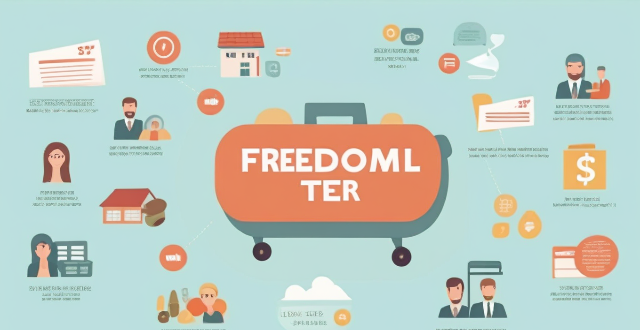
How much money do I need to achieve financial freedom ?
Financial freedom is a subjective term that varies from person to person. It generally means having enough income-producing assets to cover your expenses without relying on a job. The amount of money needed to achieve financial freedom depends on several factors, including lifestyle, location, and future goals. To determine your financial freedom number, consider factors such as lifestyle expenses, future goals, emergency funds, and retirement planning. Strategies to achieve financial freedom include building passive income streams, investing wisely, living below your means, and creating a plan and sticking to it. By following these strategies, you can reach your financial goals faster and achieve financial freedom over time.

What are some effective methods for teaching financial literacy to young adults ?
Financial literacy is a crucial life skill that every young adult should possess. It involves understanding how to manage money effectively, make informed financial decisions, and plan for the future. Here are some effective methods for teaching financial literacy to young adults: start with the basics, use interactive learning tools, encourage real-world practice, and provide access to financial professionals.

How can financial education help prevent debt ?
Financial education is crucial in preventing debt by empowering individuals with the knowledge and skills to make informed financial decisions. It covers understanding personal finance, smart borrowing practices, avoiding common pitfalls, and promoting healthy financial habits. By learning budgeting, saving, investing, credit score management, loan shopping, debt consolidation, and avoiding overspending, predatory lending, and credit card traps, individuals can reduce their risk of accumulating debt and enjoy greater financial stability and independence.

What are the key components of a comprehensive financial education program ?
A comprehensive financial education program should cover key components such as budgeting, saving, investing, and retirement planning to help individuals make informed decisions about their financial future. The program should teach understanding of income and expenses, creating a budget plan, the importance of saving, strategies for saving, basics of investing, types of investments, investment strategies, the importance of retirement planning, retirement accounts, and retirement strategies. By covering these components, individuals can improve their financial literacy and achieve their financial goals.
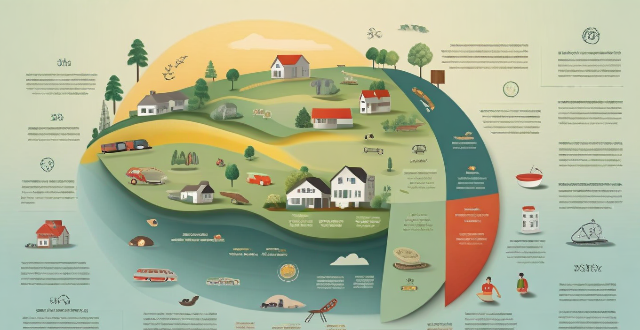
Can anyone achieve financial freedom ?
Financial freedom, a state where one's passive and active income covers living expenses without regular time-for-money exchanges, is a goal many strive for. Key factors for achieving it include education, saving habits, smart investing, debt management, multiple income streams, avoiding lifestyle inflation, long-term planning, and the right mindset. Actionable steps include budgeting, automated savings, early investing, continuous learning, and networking with like-minded individuals. While not everyone may achieve financial freedom due to varying circumstances, it is attainable for those who are committed and strategic in their approach.

Is it possible to lower my monthly utility expenses without sacrificing comfort ?
Yes, it is definitely possible to reduce your monthly utility expenses without compromising your comfort. Here are some tips and strategies that you can implement: - **Energy-efficient appliances**: Replace old appliances with energy-efficient models to save on electricity bills. - **Thermostat settings**: Adjust your thermostat settings to save money on heating and cooling. - **Lighting**: Use LED bulbs to use less energy and last longer than traditional incandescent bulbs. - **Water usage**: Fix leaks to save on your water bill. - **Insulation**: Improve insulation to keep your home warm in winter and cool in summer, reducing the need for heating and cooling. - **Unplug electronics**: Unplug electronics when not in use to save on your electricity bill. - **Shop around**: Shop around for better deals on your utilities. - **Be mindful of usage**: Be aware of how much water, gas, and electricity you're using to identify areas where you can cut back.

How does credit management contribute to a company's financial health ?
Credit management is crucial for a company's financial health, as it reduces risks, improves cash flow, and enhances profitability. It involves evaluating, monitoring, and controlling the creditworthiness of customers and suppliers. Proper credit management helps identify high-risk customers, mitigate bad debts, collect payments in a timely manner, reduce expenses, develop effective pricing strategies, and create opportunities for increased sales. Overall, credit management is essential for maintaining a healthy financial position and achieving long-term success.

How can women protect their assets and ensure long-term financial security ?
The article provides a list of strategies that women can employ to ensure their financial security over the long term. These include building an emergency fund, investing in retirement accounts, purchasing life insurance, creating a will, considering long-term care insurance, educating oneself about finance, working with a financial advisor, and prioritizing career development. Each of these steps is crucial in its own way for safeguarding one's assets and ensuring financial stability.

What role does financial literacy play in achieving wealth growth ?
Financial literacy is essential for wealth growth, encompassing budgeting, saving, investing, retirement planning, and credit management. By understanding these aspects, individuals can make informed financial decisions, reduce debt, build wealth, and achieve long-term financial stability.
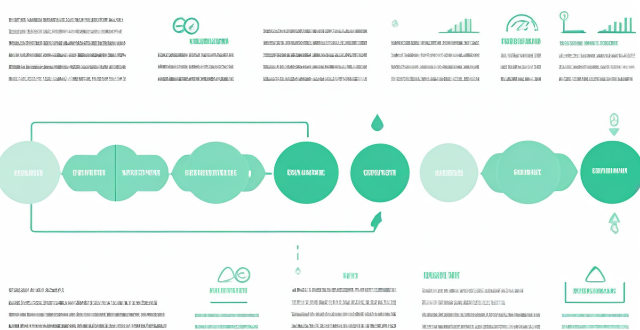
Which financial product offers the highest return on investment ?
Investing in financial products is a popular way to grow wealth, but with many options, it's hard to determine which offers the highest return on investment (ROI). This article explores popular financial products and their potential returns. The stock market offers high potential returns but also significant risks. Real estate can provide rental income and property appreciation, but comes with its own set of risks. Mutual funds offer professional management and diversification, but fees and expenses can impact returns. Cryptocurrencies have gained popularity as an alternative investment option, but are highly volatile and speculative, making them unsuitable for most investors seeking stable returns. Determining which financial product offers the highest return on investment depends on various factors, including risk tolerance, investment goals, and market conditions. Diversification across different asset classes and investment vehicles can help minimize risks and maximize returns over time.
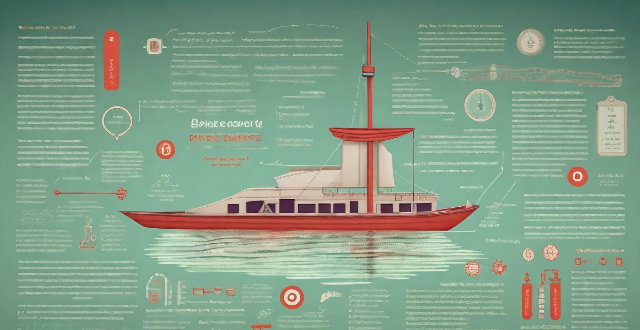
What are some tips for managing an education budget effectively ?
The article provides effective tips for managing an education budget, including creating a budget plan, tracking spending, looking for scholarships and grants, considering part-time work or freelancing, reducing unnecessary expenses, and planning ahead for future expenses. It emphasizes the importance of staying organized, prioritizing expenses, and seeking out funding opportunities to ensure that students have the resources they need to succeed in their academic pursuits.

How can I create an effective education budget plan ?
Creating an effective education budget plan involves identifying educational goals, determining expenses, evaluating financial resources, creating a budget timeline, tracking spending, and reviewing and revising the budget regularly. This process helps ensure that you have the necessary funds to cover your educational expenses while achieving your academic objectives responsibly.

How has the COVID-19 pandemic highlighted the importance of financial literacy ?
The COVID-19 pandemic has underscored the importance of financial literacy. It helps people navigate job losses, market volatility, personal finance management, long-term planning, and healthcare needs. Financially literate individuals are better equipped to handle economic disruptions and make informed decisions about their money. Seeking support and resources is also crucial during challenging times. Overall, financial literacy is essential for personal resilience and economic stability in the face of global crises like the pandemic.

Can strong ESG practices improve a company's financial performance ?
The article discusses the potential financial benefits of strong ESG practices for companies, including cost savings, risk management, reputation and brand value enhancement, talent attraction and retention, and innovation and growth opportunities. By prioritizing sustainability, social responsibility, and good governance, companies can potentially see tangible financial rewards.

How do sponsorships and advertising impact the financial stability of sports organizations ?
Sports organizations depend on sponsorships and advertising for financial stability, covering operational costs and ensuring long-term sustainability. Sponsorships provide revenue, reduce expenses, invest in infrastructure, increase attendance, and ensure long-term sustainability. Advertising generates additional revenue, increases brand awareness, expands the market, promotes merchandise sales, and enhances fan engagement. Sports organizations must seek innovative sponsorship and advertising opportunities to maintain financial stability and grow their brands.

What are the best financial products for long-term investment ?
The text provides a comprehensive overview of the various financial products available for long-term investment. It explains the definition, benefits, and risks of each option including stocks, bonds, mutual funds, ETFs, and REITs. The text emphasizes the importance of considering one's investment goals, risk tolerance, and financial situation before choosing which products to include in a portfolio. Overall, the text serves as a useful guide for individuals looking to make informed decisions about their long-term investments.

Are there alternatives to taking out a student loan for college expenses ?
There are several alternatives to student loans for covering college expenses, including scholarships and grants, work-study programs, employer tuition assistance, military benefits, and crowdfunding and community support. Scholarships and grants are typically awarded based on academic merit or financial need, while work-study programs allow students to earn money through part-time jobs. Employer tuition assistance programs may cover all or a portion of tuition costs, and serving in the military can provide access to educational benefits like the GI Bill. Crowdfunding platforms and community organizations can also provide financial support for students in need.
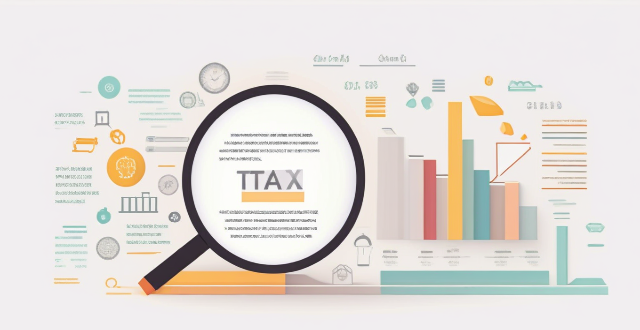
What are the tax benefits of investing in certain financial products ?
This article discusses the tax benefits of investing in certain financial products such as retirement accounts, stocks, bonds, and real estate investments. It explains how these investments can help reduce taxable income and save money on taxes, while also growing wealth over time. The article provides an overview of the different types of retirement accounts and their tax benefits, as well as the advantages of investing in stocks and bonds, including capital gains taxes, dividend income, and interest income. It also covers the tax benefits of real estate investments, such as depreciation, tax credits, and rental income deductions. The article emphasizes the importance of understanding the tax implications of each investment option and working with a qualified financial advisor to develop a strategy that meets individual goals and minimizes tax liability.

What are the common mistakes people make when trying to achieve financial freedom ?
Achieving financial freedom is a goal for many, but it's not always easy. Along the way, people often make mistakes that can hinder their progress. Here are some of the most common errors: ## 1\. Not Having a Clear Plan One of the biggest mistakes people make is not having a clear plan for achieving financial freedom. Without a roadmap, it's easy to get sidetracked or lose motivation. * **Solution**: Create a detailed plan that outlines your goals, timeline, and strategies for achieving them. ## 2\. Spending Beyond Their Means Many people fall into the trap of spending more than they earn, which leads to debt and financial stress. * **Solution**: Live below your means by budgeting, tracking expenses, and cutting unnecessary costs. ## 3\. Not Investing in Their Future Failing to invest in long-term goals like retirement or building wealth can set people back years or even decades. * **Solution**: Start investing early and regularly, even if it's just a small amount each month. ## 4\. Ignoring Debt Repayment Carrying high-interest debt can be a major obstacle to achieving financial freedom. * **Solution**: Prioritize paying off high-interest debt as soon as possible. ## 5\. Lacking Diversification in Investments Putting all your eggs in one basket can be risky. Many people make the mistake of not diversifying their investments. * **Solution**: Spread your investments across different asset classes to reduce risk. ## 6\. Not Educating Themselves About Finance A lack of financial knowledge can lead to poor decision-making and missed opportunities. * **Solution**: Educate yourself about personal finance through books, courses, and other resources. ## 7\. Failing to Review and Adjust Financial Plans Life changes, and so should your financial plans. Many people forget to review and adjust their strategies over time. * **Solution**: Regularly review your financial situation and adjust your plans accordingly.

How do I allocate funds for different educational needs in my budget plan ?
Education is crucial for personal growth, and budgeting for it is essential. Here's how to allocate funds effectively: determine goals, assess finances, create an education fund, prioritize expenses, use a budgeting tool, cut unnecessary expenses, seek financial aid, consider part-time work, and reevaluate regularly.

What is financial freedom ?
Financial freedom is a state of being where you have enough savings, investments, and cash flow to cover your living expenses without having to depend on a job or other forms of active income. It is the ability to live comfortably and pursue your passions without worrying about money.